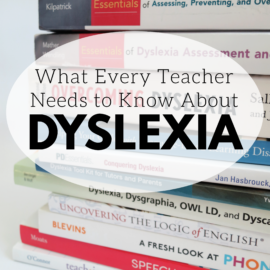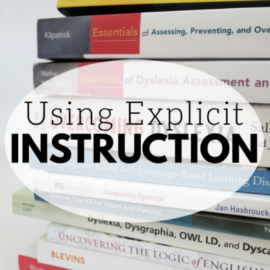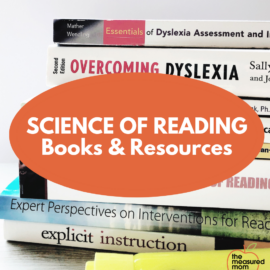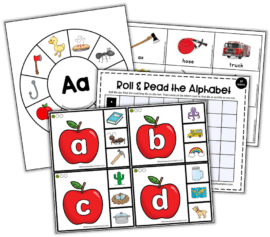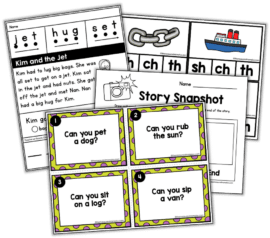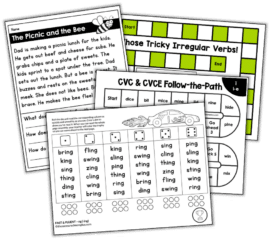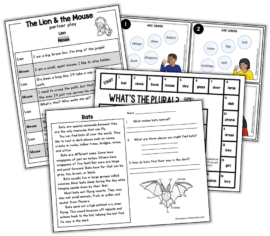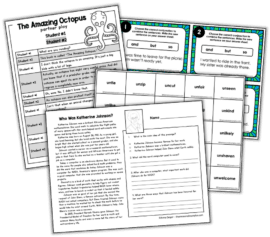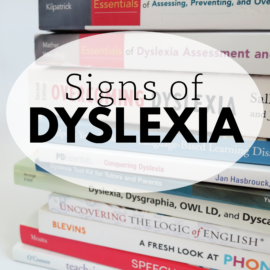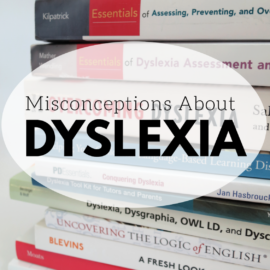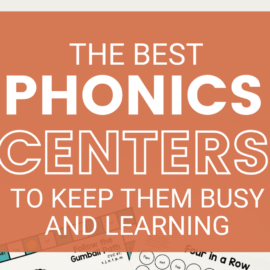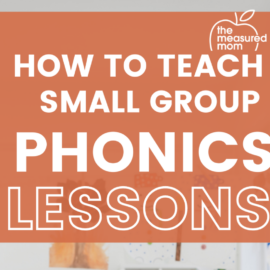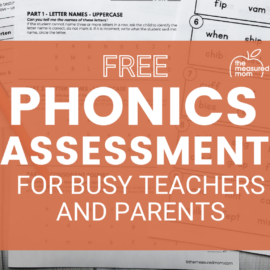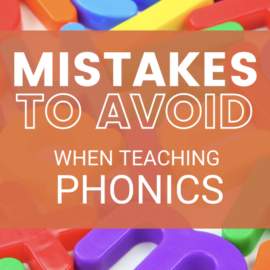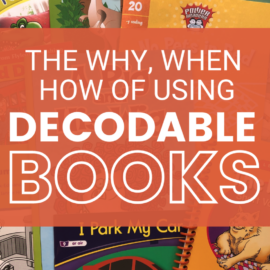Do you suspect that one of your students may have dyslexia? Here's what every teacher should know! As I look back to the students that I taught, I can picture one particular little boy who I'm sure had dyslexia. He was a bright, articulate, and kind first grader. On one particularly rough day of teaching, he gave me a little blue gem shaped like a heart. "This is for you, because you're the nicest teacher ... Read More
What is explicit instruction?
How do you teach students with dyslexia? With explicit instruction. But what IS explicit instruction anyway? In their book, Anita Archer and Charles A. Hughes tell us that explicit instruction is systematic, direct, engaging, and success oriented. If you have a few minutes, check out this helpful video from Anita Archer. It feels a little weird to use the word explicit when talking about teaching because ... Read More
Recommended Science of Reading books
The science of reading is the body of research that has been conducted on how we learn to read and write. This research has been conducted over decades, but only recently has much of it been introduced to today's classroom teachers. It's important to note that as more research is conducted, we may need to revise our previous understandings. In addition, there is disagreement when it comes to translational ... Read More
Signs of dyslexia
Today, in the third post of our dyslexia blog series, we're uncovering the signs of dyslexia. So far we've addressed dyslexia myths and defined exactly what dyslexia is. Here's a quick refresher: Dyslexia is the most common learning disability. It is "characterized by difficulties with accurate and/or fluent word recognition and by poor spelling and decoding abilities. These difficulties typically ... Read More
Busting 12 dyslexia myths
Dyslexia is the most common learning disability, yet many people know very little about it - dyslexia myths abound! Today, in the first of my collaborative blog series with Becky Spence of This Reading Mama, we're going to do some dyslexia myth busting! Myth #1: People with dyslexia see letters and words backward, and people with dyslexia always write letters and words backward. This misconception may ... Read More
Phonics centers that will keep students busy and learning
Last week we looked at how to schedule and structure your small group phonics lessons. One question remains ... what are the rest of the students doing while you teach small groups? Today I'm sharing ideas for phonics centers! As you teach your small groups (see last week's post for all the details), the rest of your class needs to be working independently. But classroom time is valuable. How can you make ... Read More
How to give small group phonics lessons
We're nearing the end of our phonics series, and it's time to get down to the nuts and bolts. What exactly should phonics lessons look like in your classroom? Today we'll look at how to meet the needs of all your students using small group instruction. My first year of teaching first grade, I was required to use a very explicit, scripted phonics program. It was a fail. Full disclosure: At the time I ... Read More
Free phonics assessment
Are you looking for a phonics assessment to help you determine your students' phonics knowledge? I'm sharing a free assessment in today's blog post! Today I'm sharing what I wish I had in my early teaching years ... a phonics assessment! While most of my teaching career was with first and second grade, the first few years I taught a combination class of third, fourth, and fifth graders. Looking back, I ... Read More
Mistakes to avoid when giving phonics instruction
For decades I considered myself a balanced literacy teacher. Of course I believed in phonics instruction. Of course I taught phonics. Or did I? Looking back, I made some pretty big mistakes when it came to phonics instruction. I'm sharing them here in the hopes that I can help you avoid my own mistakes! Phonics Instruction Mistake #1: Not following a strong scope and sequence As a balanced ... Read More
Answers to common questions about decodable readers
What are decodable readers? Who should be reading them? When can students move on to a different type of text? We'll answer these questions and more in today's post! I've been upfront about this before, but I'll say it again. I wasn't always a fan of decodable readers. Decodable readers (also called decodable books) can be stilted, boring, and nonsensical. The good news is that times are ... Read More

